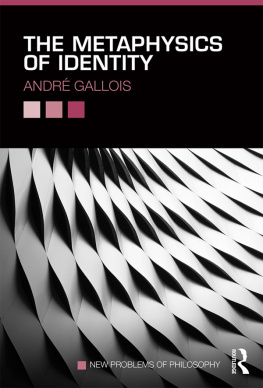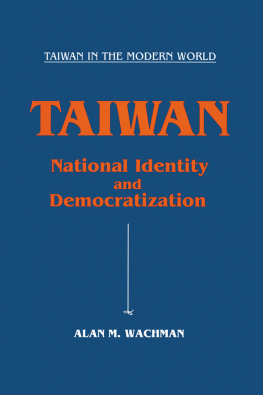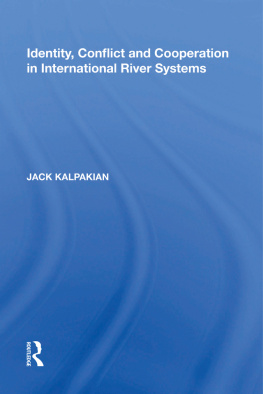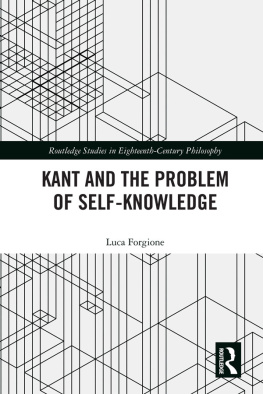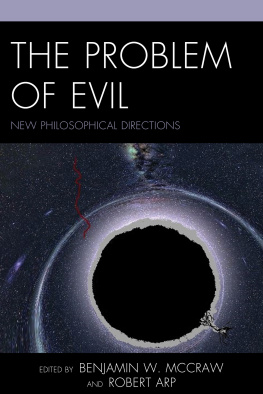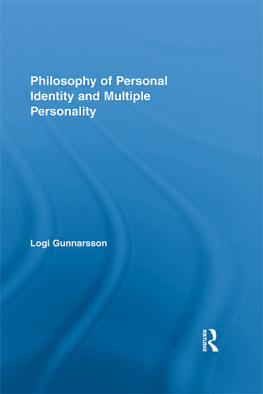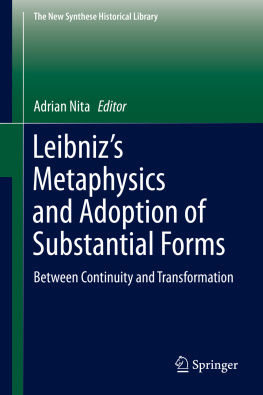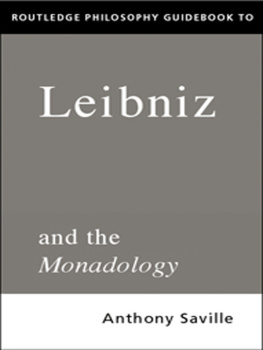The Metaphysics of Identity
The philosophical problem of identity and the related problem of change go back to the ancient Greek philosophers and fascinated later figures, including Leibniz, Locke, and Hume. Heraclitus argued that one could not swim in the same river twice because new waters were ever flowing in. When is a river not the same river? If one removes one plank at a time when is a ship no longer a ship? What is the basic nature of identity and persistence?
In this book, Andr Gallois introduces and assesses the philosophical puzzles posed by things persisting through time. Beginning with essential historical background to the problem he explores the following key topics and debates:
- mereology and identity, including arguments from Leibnizs Law
- the constitution view of identity
- the relative identity argument concerning identity
- temporary identity
- four-dimensionalism, counterpart and multiple counterpart theory
- supervenience
- the problem of temporary intrinsics
- the necessity of identity
- indeterminate identity
- presentism
- criteria of identity
- conventionalism about identity.
Including chapter summaries, annotated further reading and a glossary, this book is essential reading for anyone seeking a clear and informative introduction to and assessment of the metaphysics of identity.
Andr Gallois is Professor of Philosophy at Syracuse University, USA. His previous publications on issues about identity and persistence include his book Occasions of Identity (OUP, 1998).
New Problems of Philosophy
Series Editor: Jos Luis Bermdez
Routledges New Problems of Philosophy series has a most impressive line-up of topical volumes aimed at upper-level undergraduate and graduate students in philosophy and at others with interests in cutting edge philosophical work. The authors are influential figures in their respective fields and notably adept at synthesizing and explaining intricate topics fairly and comprehensively.
John Heil, Monash University, Australia, and Washington University, St Louis, USA
This is an outstanding collection of volumes. The topics are well chosen and the authors are outstanding. They will be fine texts in a wide range of courses.
Stephen Stich, Rutgers University, USA
The New Problems of Philosophy series provides accessible and engaging surveys of the most important problems in contemporary philosophy. Each book examines a topic or theme that has either emerged on the philosophical landscape in recent years, or a longstanding problem refreshed in light of recent work in philosophy and related disciplines. Clearly explaining the nature of the problem at hand and assessing attempts to answer it, books in the series are excellent starting points for undergraduate and graduate students wishing to study a single topic in depth. They will also be essential reading for professional philosophers. Additional features include chapter summaries, further reading and a glossary of technical terms.
Also available:
Consequentialism, Julia Driver
Images, John V. Kulvicki
Attention, Wayne Wu
Egalitarianism, Iwao Hirose
Cognitive Phenomenology, Elijah Chudnoff
Disjunctivism, Matthew Soteriou
The Metaphysics of Identity
Andr Gallois

First published 2017
by Routledge
2 Park Square, Milton Park, Abingdon, Oxon OX14 4RN
Simultaneously published in the USA and Canada
by Routledge
711 Third Avenue, New York, NY 10017
Routledge is an imprint of the Taylor & Francis Group, an informa business
2017 Andr Gallois
The right of Andr Gallois to be identified as the author of this work has been asserted by him in accordance with sections 77 and 78 of the Copyright, Designs and Patents Act 1988.
All rights reserved. No part of this book may be reprinted or reproduced or utilised in any form or by any electronic, mechanical, or other means, now known or hereafter invented, including photocopying and recording, or in any information storage or retrieval system, without permission in writing from the publishers.
Trademark notice: Product or corporate names may be trademarks or registered trademarks, and are used only for identification and explanation without intent to infringe.
British Library Cataloguing in Publication Data
A catalogue record for this book is available from the British Library
Library of Congress Cataloging-in-Publication Data
Names: Gallois, Andre, author.
Title: The metaphysics of identity / by Andre Gallois.
Description: 1 [edition]. | New York : Routledge, 2016. | Series: New problems of philosophy | Includes bibliographical references and index.
Identifiers: LCCN 2015050376 | ISBN 9780415843423 (hardback : alk. paper) | ISBN 9780415843430 (pbk. : alk. paper) | ISBN 9780203756218 (e-book)
Subjects: LCSH: Identity (Philosophical concept) | Change. | Persistence.
Classification: LCC BD236 .G348 2016 | DDC 111/.82dc23
LC record available at http://lccn.loc.gov/2015050376
ISBN: 978-0-415-84342-3 (hbk)
ISBN: 978-0-415-84343-0 (pbk)
ISBN: 978-0-203-75621-8 (ebk)
Typeset in Joanna and Scala Sans
by Apex CoVantage, LLC
Contents
As we are often reminded by the media, we live in an ever changing world. What the media has in mind by change is an infinitesimal part of the changes constantly taking place in and around us. As I write this the snow melts from my roof, the heating system activates in my house, cars drive past, the screen on the word processor displays new letters, my body undergoes innumerable changes, and each of the atoms it contains itself undergo innumerable changes. What then is change? From a philosophical point of view a relatively non-committal answer is this. For something to change is for it to acquire, or lose, a characteristic or property other than existence. That is, a change takes place when a persisting thing has a property at some time which it lacks at another. So understood, change has been viewed by a number of philosophers as highly problematic.
Why highly problematic? There are two answers to this question: one that applies to any example of change, and the other to a restricted, but nonetheless pervasive, type of change. The first answer is that if we take change to require a persisting thing having a property at one time which it lacks at another, then such change will require something to have incompatible properties. Suppose a circular coin is heated so that it becomes elliptical. On the view of change we are considering, that means the same thing, the coin, is both circular at one time and elliptical at another. So, when it undergoes such change, the coin is both circular and elliptical. But nothing can be both circular and elliptical.
The second answer to the question as to what makes change problematic is restricted to changes in composite things: that is, things with parts. The problem arises if things can change their parts. Here is just one problem, which we will investigate later, posed by the possibility of something changing its parts. Typically, if the parts of something, say the bricks that make up a brick wall, can be replaced, then all of its parts can be replaced. Suppose the bricks in the wall are replaced one by one with a lengthy period between each replacement. Eventually we will have the same number of entirely new bricks organized in just the way the replaced ones were in the original wall. The question is this: after all the original bricks have been replaced do the new bricks make up the original wall? Do we still have the original wall even though it is made up of entirely different bricks? It seems we run into trouble whichever way we answer this question.

